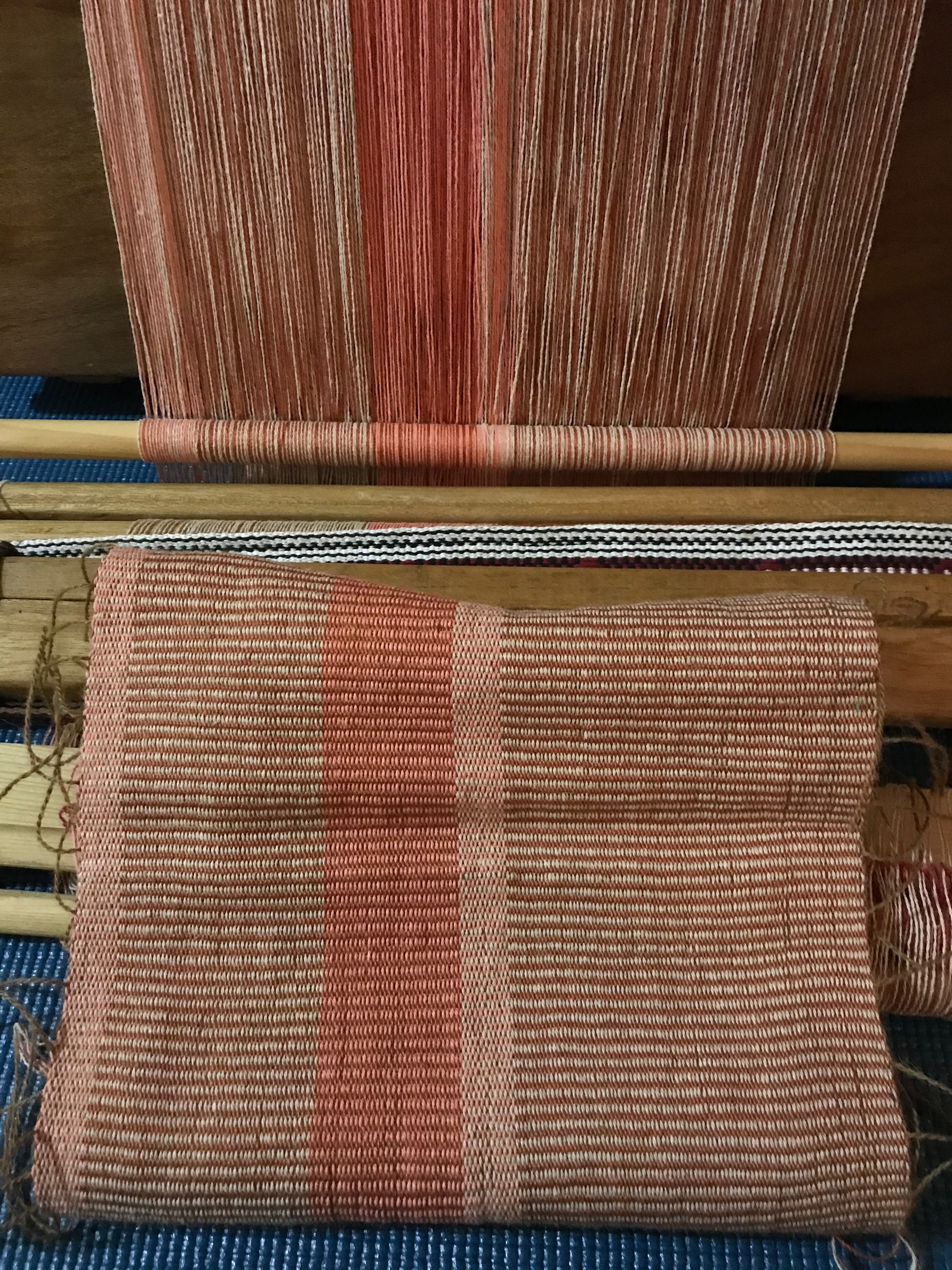Accession card
Description
My chosen object is a woven shawl that began from a failure. The weft here, composed of baby alpaca wool, was originally the warp of another weaving. My good friend picked up this soft brown wool in Bolivia some years ago. She has since passed. To remember her, during the height of lockdown, I wanted to weave with this material that she had given me, that I have carried with me from apartment to apartment, and since I weave on an indigenous Taiwanese blackstrap loom that creates only warp-facing weave structures, I decided to run the risk of using the brown alpaca wool as warp, even though I knew and have been strongly cautioned before not to use wool as warp on such a loom, as wool is quite hairy and sticky, and wrapping around a bamboo pole and string heddles would be quite a tangly mess as I open the shed with the movements of my body. But I wanted this material to be visible, to see the brown wool, paired with this pinkish madder root dyed cotton that I had hand-dyed, together in this shawl — to think of her when I wrap it around my shoulders — so I very wrongly used wool for warp. And it went as I predicted — it was quite frustrating and after I wove a small piece and many broken threads, and attempts to fix the tension, I decided to just cut the whole thing off. But I wanted to save the brown alpaca warp, so here it is now repurposed as the weft. It is the soft brown feathery edge on this shawl. It makes the inner body of the textile, holding the new warp, still composed of the pink madder but this time with other cotton and linen threads, together, and yet it is still visible on the margins. These threads each have a different history, coming from Asia, North and South America; they hold sentimental value and memories of their making. Now, woven together, these stories become entangled, something new altogether, while still serving as a reminder of their diverse beginnings.
Code
Date
University
Title
Medium
- Image



